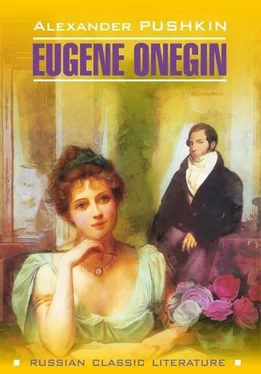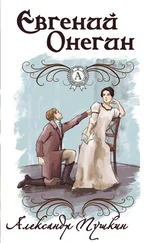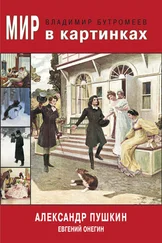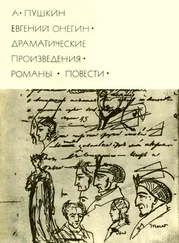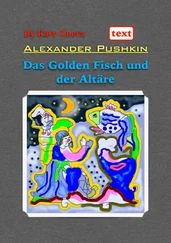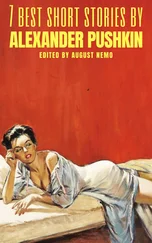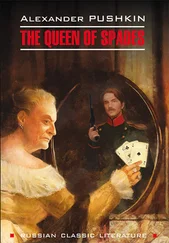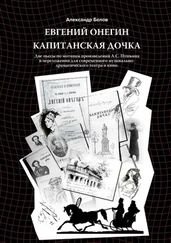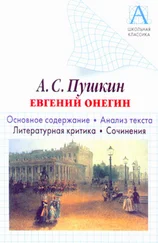Alexander Pushkin - Евгений Онегин / Eugene Onegin
Здесь есть возможность читать онлайн «Alexander Pushkin - Евгений Онегин / Eugene Onegin» — ознакомительный отрывок электронной книги совершенно бесплатно, а после прочтения отрывка купить полную версию. В некоторых случаях можно слушать аудио, скачать через торрент в формате fb2 и присутствует краткое содержание. Город: СПб, Год выпуска: 2017, ISBN: 2017, Жанр: Русская классическая проза, на английском языке. Описание произведения, (предисловие) а так же отзывы посетителей доступны на портале библиотеки ЛибКат.
- Название:Евгений Онегин / Eugene Onegin
- Автор:
- Жанр:
- Год:2017
- Город:СПб
- ISBN:978-5-9925-1230-4
- Рейтинг книги:3 / 5. Голосов: 1
-
Избранное:Добавить в избранное
- Отзывы:
-
Ваша оценка:
- 60
- 1
- 2
- 3
- 4
- 5
Евгений Онегин / Eugene Onegin: краткое содержание, описание и аннотация
Предлагаем к чтению аннотацию, описание, краткое содержание или предисловие (зависит от того, что написал сам автор книги «Евгений Онегин / Eugene Onegin»). Если вы не нашли необходимую информацию о книге — напишите в комментариях, мы постараемся отыскать её.
В формате PDF A4 сохранен издательский макет книги.
Евгений Онегин / Eugene Onegin — читать онлайн ознакомительный отрывок
Ниже представлен текст книги, разбитый по страницам. Система сохранения места последней прочитанной страницы, позволяет с удобством читать онлайн бесплатно книгу «Евгений Онегин / Eugene Onegin», без необходимости каждый раз заново искать на чём Вы остановились. Поставьте закладку, и сможете в любой момент перейти на страницу, на которой закончили чтение.
Интервал:
Закладка:
XXXVI
Ye miracles of courtly grace,
He left you first, and I must own
The manners of the highest class
Have latterly vexatious grown;
And though perchance a lady may
Discourse of Bentham or of Say,
Yet as a rule their talk I call
Harmless, but quite nonsensical.
Then they’re so innocent of vice,
So full of piety, correct,
So prudent, and so circumspect
Stately, devoid of prejudice,
So inaccessible to men,
Their looks alone produce the spleen.
XXXVII
And you, my youthful damsels fair,
Whom latterly one often meets
Urging your droshkies swift as air
Along Saint Petersburg’s paved streets,
From you too Eugene took to flight,
Abandoning insane delight,
And isolated from all men,
Yawning betook him to a pen.
He thought to write, but labour long
Inspired him with disgust and so
Nought from his pen did ever flow,
And thus he never fell among
That vicious set whom I don’t blame —
Because a member I became.
XXXVIII
Once more to idleness consigned,
He felt the laudable desire
From mere vacuity of mind
The wit of others to acquire.
A case of books he doth obtain —
He reads at random, reads in vain.
This nonsense, that dishonest seems,
This wicked, that absurd he deems,
All are constrained and fetters bear,
Antiquity no pleasure gave,
The moderns of the ancients rave —
Books he abandoned like the fair,
His book-shelf instantly doth drape
With taffety instead of crape.
XXXIX
Having abjured the haunts of men,
Like him renouncing vanity,
His friendship I acquired just then;
His character attracted me.
An innate love of meditation,
Original imagination,
And cool sagacious mind he had:
I was incensed and he was sad.
Both were of passion satiate
And both of dull existence tired,
Extinct the flame which once had fired;
Both were expectant of the hate
With which blind Fortune oft betrays
The very morning of our days.
XL
He who hath lived and living, thinks,
Must e’en despise his kind at last;
He who hath suffered ofttimes shrinks
From shades of the relentless past.
No fond illusions live to soothe,
But memory like a serpent’s tooth
With late repentance gnaws and stings.
All this in many cases brings
A charm with it in conversation.
Onegin’s speeches I abhorred
At first, but soon became inured
To the sarcastic observation,
To witticisms and taunts half-vicious
And gloomy epigrams malicious.
XLI
How oft, when on a summer night
Transparent o’er the Neva beamed
The firmament in mellow light,
And when the watery mirror gleamed
No more with pale Diana’s rays [16] The midsummer nights in the latitude of St. Petersburg are a prolonged twilight.
,
We called to mind our youthful days —
The days of love and of romance!
Then would we muse as in a trance,
Impressionable for an hour,
And breathe the balmy breath of night;
And like the prisoner’s our delight
Who for the greenwood quits his tower,
As on the rapid wings of thought
The early days of life we sought.
XLII
Absorbed in melancholy mood
And o’er the granite coping bent,
Onegin meditative stood,
E’en as the poet says he leant. [17] Refers to Mouravieff’s Goddess of the Neva . At St. Petersburg the banks of the Neva are lined throughout with splendid granite quays.
‘Tis silent all! Alone the cries
Of the night sentinels arise
And from the Millionaya [18] A street running parallel to the Neva, and leading from the Winter Palace to the Summer Palace and Garden.
afar
The sudden rattling of a car.
Lo! on the sleeping river borne,
A boat with splashing oar floats by,
And now we hear delightedly
A jolly song and distant horn;
But sweeter in a midnight dream
Torquato Tasso’s strains I deem.
XLIII
Ye billows of blue Hadria’s sea,
O Brenta, once more we shall meet
And, inspiration firing me,
Your magic voices I shall greet,
Whose tones Apollo’s sons inspire,
And after Albion’s proud lyre
Possess my love and sympathy.
The nights of golden Italy
I’ll pass beneath the firmament,
Hid in the gondola’s dark shade,
Alone with my Venetian maid,
Now talkative, now reticent;
From her my lips shall learn the tongue
Of love which whilom Petrarch sung.
XLIV
When will my hour of freedom come!
Time, I invoke thee! favouring gales
Awaiting on the shore I roam
And beckon to the passing sails.
Upon the highway of the sea
When shall I wing my passage free
On waves by tempests curdled o’er!
‘Tis time to quit this weary shore
So uncongenial to my mind,
To dream upon the sunny strand
Of Africa, ancestral land [19] The poet was, on his mother’s side, of African extraction, a circumstance which perhaps accounts for the southern fervour of his imagination. His great-grandfather, Abraham Petrovitch Hannibal, was seized on the coast of Africa when eight years of age by a corsair, and carried a slave to Constantinople. The Russian Ambassador bought and presented him to Peter the Great who caused him to be baptized at Vilnius. Subsequently one of Hannibal’s brothers made his way to Constantinople and thence to St. Petersburg for the purpose of ransoming him; but Peter would not surrender his godson who died at the age of ninety-two, having attained the rank of general in the Russian service.
,
Of dreary Russia left behind,
Wherein I felt love’s fatal dart,
Wherein I buried left my heart.
XLV
Eugene designed with me to start
And visit many a foreign clime,
But Fortune cast our lots apart
For a protracted space of time.
Just at that time his father died,
And soon Onegin’s door beside
Of creditors a hungry rout
Their claims and explanations shout.
But Eugene, hating litigation
And with his lot in life content,
To a surrender gave consent,
Seeing in this no deprivation,
Or counting on his uncle’s death
And what the old man might bequeath.
XLVI
And in reality one day
The steward sent a note to tell
How sick to death his uncle lay
And wished to say to him farewell.
Having this mournful document
Perused, Eugene in postchaise went
And hastened to his uncle’s side,
But in his heart dissatisfied,
Having for money’s sake alone
Sorrow to counterfeit and wail —
Thus we began our little tale —
But, to his uncle’s mansion flown,
He found him on the table laid,
A due which must to earth be paid.
XLVII
The courtyard full of serfs he sees,
And from the country all around
Had come both friends and enemies —
Funeral amateurs abound!
The body they consigned to rest,
And then made merry pope and guest,
With serious air then went away
As men who much had done that day.
Lo! my Onegin rural lord!
Of mines and meadows, woods and lakes,
He now a full possession takes,
He who economy abhorred,
Delighted much his former ways
To vary for a few brief days.
XLVIII
For two whole days it seemed a change
To wander through the meadows still,
The cool dark oaken grove to range,
To listen to the rippling rill.
But on the third of grove and mead
He took no more the slightest heed;
They made him feel inclined to doze;
And the conviction soon arose,
Ennui can in the country dwell
Though without palaces and streets,
Cards, balls, routs, poetry or fetes;
On him spleen mounted sentinel
And like his shadow dogged his life,
Or better, – like a faithful wife.
Интервал:
Закладка:
Похожие книги на «Евгений Онегин / Eugene Onegin»
Представляем Вашему вниманию похожие книги на «Евгений Онегин / Eugene Onegin» списком для выбора. Мы отобрали схожую по названию и смыслу литературу в надежде предоставить читателям больше вариантов отыскать новые, интересные, ещё непрочитанные произведения.
Обсуждение, отзывы о книге «Евгений Онегин / Eugene Onegin» и просто собственные мнения читателей. Оставьте ваши комментарии, напишите, что Вы думаете о произведении, его смысле или главных героях. Укажите что конкретно понравилось, а что нет, и почему Вы так считаете.
